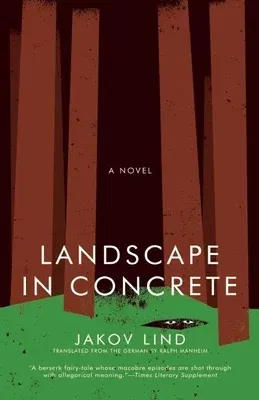It is this book that confirms Lind's status as an author of
international importance.--New York Times
Sergeant Gauthier Bachmann is the perfect Nazi soldier. But after a
horrifying defeat at Voroshenko, where most of his Eighth Hessian
Infantry Regiment was slaughtered in a single instant, Bachmann was
declared mentally unfit to serve. Incapable of accepting this judgment,
and of returning to his girlfriend and a quiet life as a gold- and
silversmith, Bachmann wanders the war-ravaged countryside, trying to
find a way to rejoin his regiment, or any regiment, and return to the
front.
While trying to find his regiment and come to terms with the horrors he
has seen and committed, the increasingly unstable Bachmann is
manipulated by a series of figures from the war's underbelly--deserters
and collaborators, corrupt officers and sexual predators--who induce him
to carry out their venal missions, which they've justified against the
background of institutionalized murder going on all around them.
Containing dark echoes of Jaroslav Hasek's The Good Soldier Svejk,
Jakov Lind's Landscape in Concrete is an astonishing and highly
original imagining of (the) dimensions of evil including sadistic
cruelty, of the condition of being a victim and the madness abroad which
constitutes the virtual victory of Hitler if we fail to translate
survival into freedom (Anthony Rudolf).
Jakov Lind was born in Vienna and survived the Second World War by
fleeing into Germany, where he disguised himself as a Dutch deckhand.
Regarded in his lifetime as a successor to Beckett and Kafka, Lind was
posthumously awarded the Theodor Kramer Prize in 2007.
Ralph Manheim was one of the great translators of the twentieth
century. He translated Günter Grass, Bertolt Brecht, Louis-Ferdinand
Céline, Hermann Hesse, Peter Handke, and more. In 1982, PEN American
Center created an award for translation in his name.

